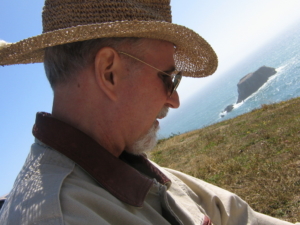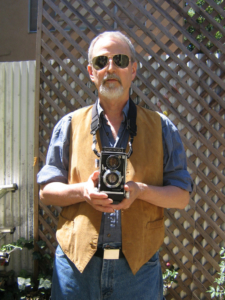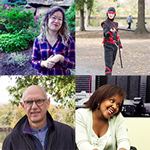Faces Behind the Screen: Pete Eckert
Quick Links

“I’m trained as a sculptor. I have degrees in industrial design. But then I started to go blind, and it would make more sense for me to be a sculptor. I know how to cast and foundry work and all that stuff.
Retinitis pigmentosa is an umbrella term for a number of maladies that begin taking your vision from the outside of the retina and work their way in, building a pigment– pigmentosa pigment. And eventually, it comes in and it clouds over the macula. So it closes off vision, similar to a camera dilating down.
I was a contractor. I was building residential buildings, and I was doing sculpture.
But blind people don’t have much money, and so I live in a tiny cottage with a tiny studio in a tiny plot of land. And I was doing huge sculptures.
One or two of my sculptures could inundate or just completely cover the land that I own. And so I needed something smaller, and so going back to ideas and producing photos, you can have massive amounts of information, in digital or negatives. So they’re easier to store and easier to produce. It’s more in tune with the modern world.”
“I adapted, but I didn’t know what was going on. And it took a couple of years before I was diagnosed with what was going on. But I struggled.
I’m adapted to blindness. It’s not my greatest struggle.
I’ve been totally blind for about 30 years, and the hardest thing for me to overcome is the assumptions of sighted people. Not blindness itself, but the assumptions of sighted people. Their preconceptions, their prejudice of what it’s like to be blind.
The blind label encumbers a whole bunch of, like you say, spectrum of blindness. I’m totally blind, and so when I function, people think I’m mysterious or magical or, how do you do that? But it’s a slippery slope. When you don’t function, people think that you can’t function at all, and actually, people start talking to you louder, as if you can’t hear or grabbing hold of you as if you can’t walk.
This is the best time in history to be a blind person. Technology, the adaptive aids and equipment, that dogs are, by law, supposed to be available and you can take them anywhere. We live in a very good time for blind people.”
Faces Behind the Screen is a storytelling project focusing on communities that benefit from a more accessible web.




